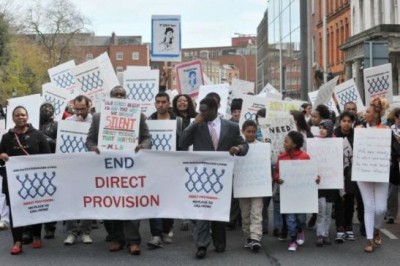Mistreatment of Asylum seekers in Ireland : Direct Provision, Human Dignity, Personal Autonomy and the ECHR

Human dignity is the rock on which the superstructure of human rights law is built, and references to human dignity can be found throughout the major international human rights treaties. According to Kantian Philosophy, human dignity rests on autonomy which is inherent in each individual. The link between human dignity and autonomy is important when examining the plight of those affected by the Irish system of ‘Direct Provision’, which denies personal autonomy for extended periods (average of 4 years extended to 12 and 14 years in some cases), and has been described as an assault on human dignity and an assault on the Rule of law.
In addition to the effects of direct provision on the dignity of the individual (asylum seeker) on one level one should also consider the effect direct provision has on the dignity of society itself in the broader sense. The Preamble of the European Convention of Human Rights affirms a commitment to the principles established in the Universal Declaration and therefore dignity is understood to be a central value inherent in the Convention.
Personal Autonomy
The term ‘personal autonomy’ may be described as an individual’s capacity for self-determination or self-governance. It has also been said that personal autonomy derives its significance from its character as ‘emanation of human dignity.’ This encompasses freedom of choice regarding one’s own life. It is clear from the case law of the EctHR, that personal autonomy should be regarded as a general principle of law, ( See Pretty v UK, para 61) and human dignity and human freedom are the ‘ very essence’ of the Convention. (See SW v UK, para 44.)
Conceptually, personal autonomy includes both the physical freedom to act as a free agent, as well as the ‘psychological sense’, which is the freedom ‘to know what we can do if we want to.’ To deny an individual this psychological sense of his or her liberty for an exasperated length of time, such as the amount of time asylum seekers are currently subjected to under the system of direct provision, is a ‘denial of the most fundamental aspiration of the person towards liberty and expansion’ and such infringements can not be good in the ‘moral sense.’ The right to personal autonomy does not mean one can simply do whatever he or she wishes in every circumstance. It is limited by law, and generally one must not interfere with the rights of others, and a balance must be found between the interests of the individual and the public.
The personal autonomy of asylum seekers under the direct provision system may be infringed in many ways. The limited choice of food provided, for example, the set meal times, curfews, decisions regarding who they share living space with, the outright ban on receiving visitors to accommodation centres. These concerns may negatively impact the individual on a daily basis for protracted periods of time and are likely to engage Article 8 of the Convention. Concerns regarding low levels of personal autonomy by asylum seekers living under direct provision have been repeatedly reported by the Commissioner for Human Rights Mr. Thomas Hammerberg following his visits to Ireland.
Article 8 of the ECHR, Right to Private and Family Life
Ireland is not only bound by Article 8 of ECHR on the issue of asylum procedures but there may be a positive obligation inherent in an effective respect for private and family life.’ ( see x,y,z v Netherlands.) The European Court previously held that ‘private life’ includes aspects of an individuals physical and social identity, including ‘the right to personal autonomy. ‘ (See Evan v UK, para 71.)
Infringements under Article 8 include harassment by others, noise nuisance, lack of privacy, continuous unlawful surveillance, and interference with the right to develop one’s own personality and to create and foster relationships with others. All of which may be applicable here. Thus, it may be argued direct provision denies the asylum seeker the opportunity to develop his/her personality and create relationships with others in the community, inter alia, the basic act of welcoming another into ones home. Infringements to human dignity, personal autonomy and the right to private and family life currently experienced by asylum seekers are not prescribed by law, are not proportionate, do not serve a legitimate aim and are not necessary in a democratic society. (See EU Directive 2003/9/EC.)
Mr. John O’Shea holds a law degree (BCL) from the National University of Ireland, an MA in Public Advocacy ( NUIG) and an LLM in International Human Rights law from the Irish Centre for Human Rights. email : [email protected]

